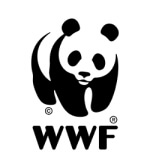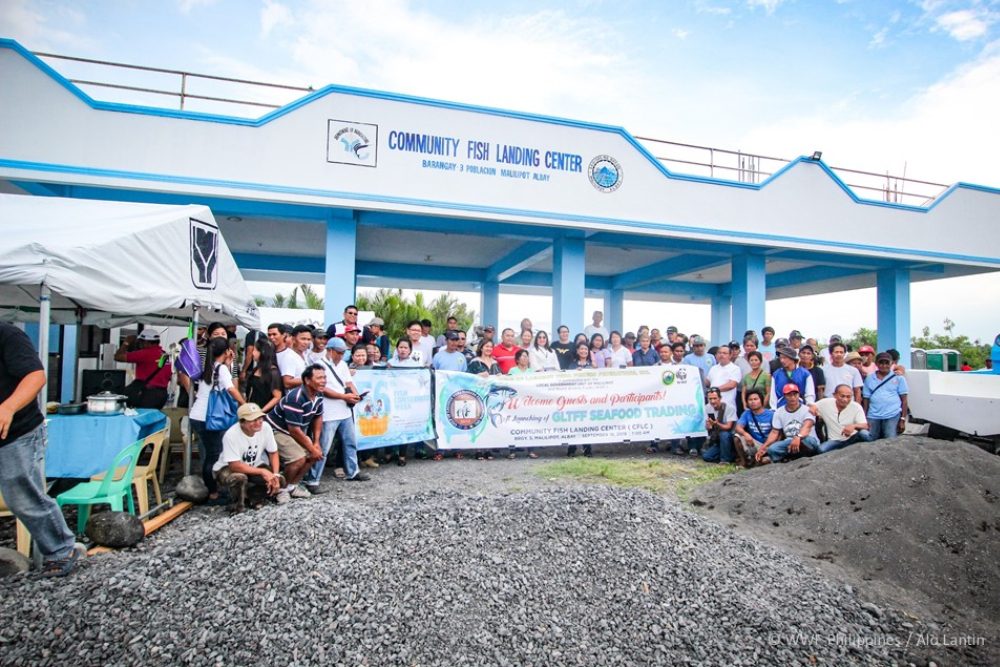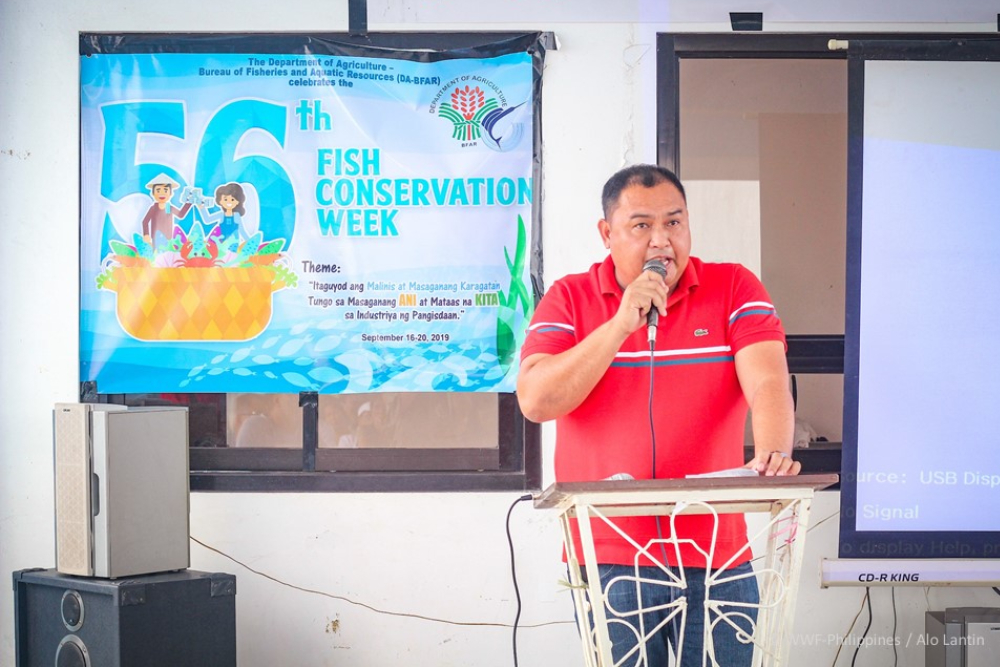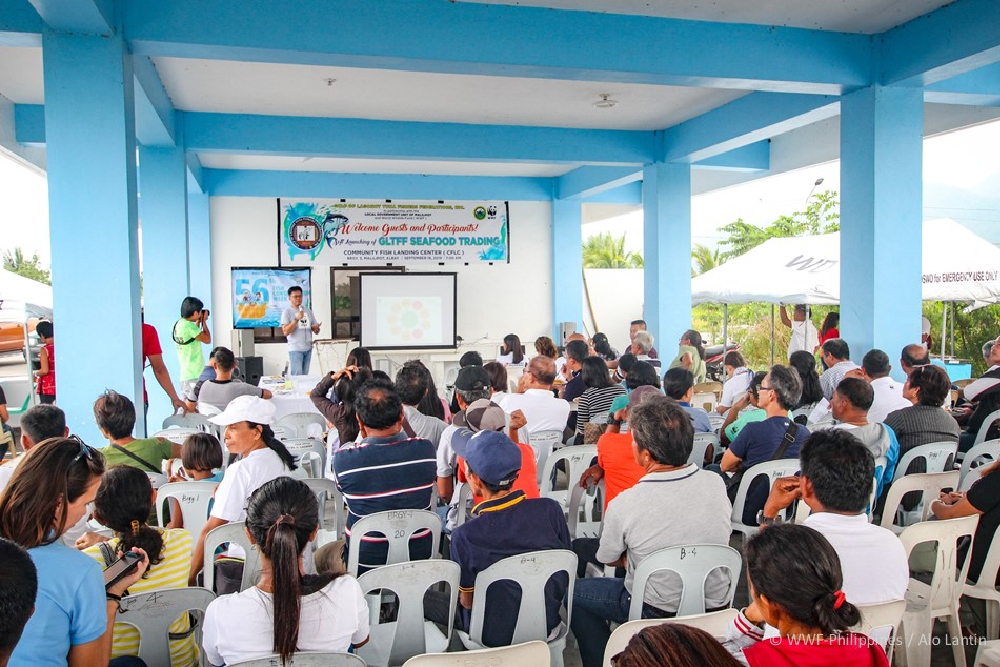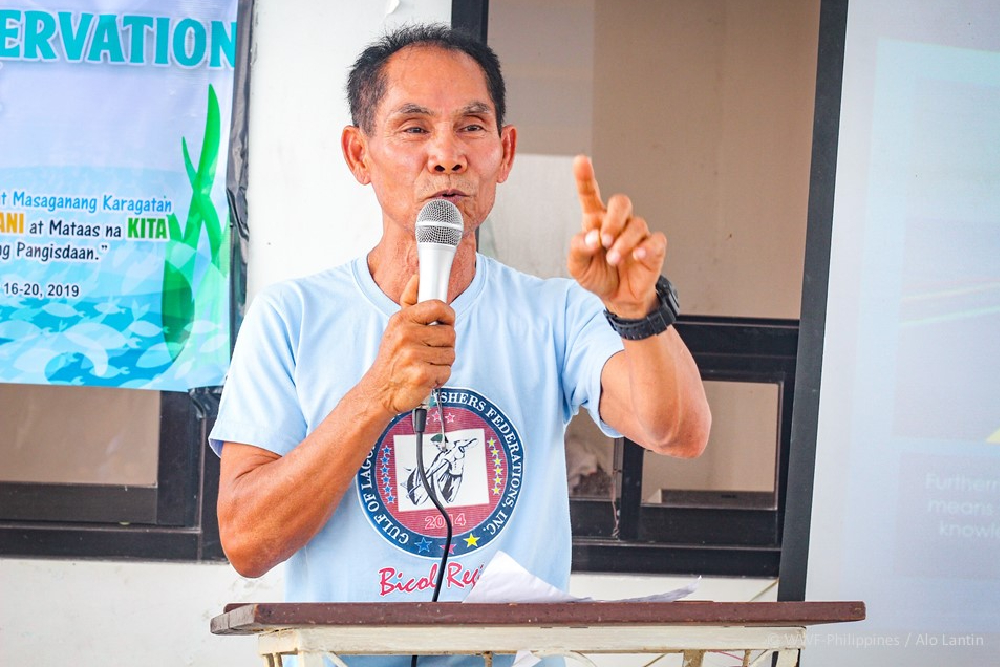The Gulf of Lagonoy Tuna Fishers Federation, Inc. (GLTFFI) took their first steps towards sustainable business with the launching of a seafood hub in Malilipot, Albay, last September 18.
The World Wide Fund for Nature (WWF) Philippines has been assisting the fishermen of Lagonoy Gulf with the establishment of a tuna fishery enterprise through the Sustainable Tuna Partnership program. To support this, WWF-Philippines helped local fishermen organize into fifteen associations under the GLTFFI. The federation encompasses municipal tuna fishermen from the provinces of Catanduanes, Camarines Sur, and Albay, with 2,770 tuna fishermen coming from 112 villages across the Bicol region.
The goal of WWF-Philippines is for the handline fishermen of Lagonoy Gulf to be certified by the Marine Stewardship Council (MSC), the most stringent ecolabel for fisheries resources in the world. The new seafood hub in Malilipot is a crucial milestone towards this goal, serving as a centralized hub for all tuna landing activities under the GLTFFI.
“What we want is not business as usual. We need to start looking at sustainability, equity, quality, and traceability issues. We need to start things right,” said WWF-Philippines Sustainable Tuna Partnerships Project Manager Joann Binondo. Having all tuna landing activities pass through the seafood hub will make it easier to check the quality of fish and to ensure that they are being caught sustainably. This increased degree of monitoring will help raise the quality of fish caught in Lagonoy Gulf while securing the future of its tuna fisheries.
“Indeed, collaboration is taking place here in Malilipot. Let’s be the pillar, the model for sustainable fisheries,” said BFAR Region 5 Chief of the Regional Fisheries and Fisherfolk Training Center Dr. Noemi Lanzuela. Throughout the launch, the Bureau of Fisheries and Aquatic Resources, the Local Government Unit of Malilipot, and JAM Seafoods pledged their support behind the launching of the seafood hub as well as future activities of the GLTFFI.
The Congressional Spouses Foundation, Inc., donated funds to help kick-start the fishing enterprise of the GLTFFI. The seafood hub launch was mounted by small-scale fishermen from the GLTFFI, with their work being the result of the efforts of the different partners pushing for sustainable tuna fisheries in Lagonoy Gulf.
Plans for GLTFFI’s sustainable enterprise were also unveiled during the seafood hub launch. WWF-Philippines Fisheries Technical Officer David David discussed the importance of having an electronic catch documentation system (eCDTS) system in place at the seafood, in order to ensure quality of catches. Binondo also spoke to the GLTFFI about the role of the MSC client group and what it would mean for the future of the fisheries federation.
Comprehensive plans for the seafood hub were also unveiled during the launch. WWF-Philippines envisions the hub as a place to showcase best practices in fishery sustainability. Learning centers, tourist areas, and processing centers aim to increase the potential value of each catch by as much as possible. The hub will highlight ways in which fishermen can earn more from each catch, reducing their need to overfish in order to be profitable.
“This is what it means for us to secure the liveilhoods of our tuna fishers,” concluded Binondo. WWF-Philippines recognizes the protection of ocean resources requires improvements to the livelihoods of the marginalized. With the new seafood hub now established, the organization hopes to continue to uplift the livelihoods of the small-scale tuna fishermen of Lagonoy Gulf.
The seafood hub was launched as part of BFAR’s 56th Fish Celebration Week. Enterprise development activities will continue over the coming months as WWF-Philippines prepares their fishermen for the MSC accreditation process.
This project is co-funded by the European Union.

